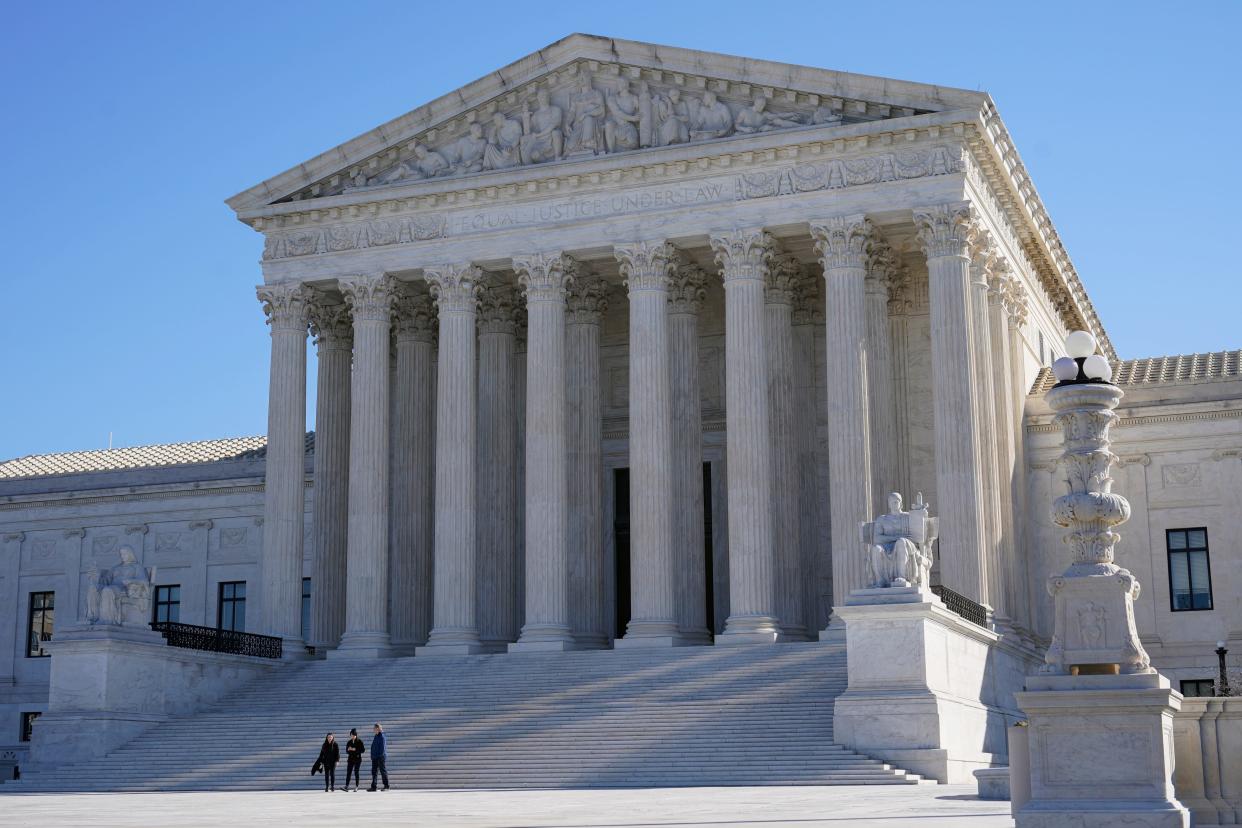Tribal families can be given priority in Native American adoptions, Supreme Court rules

- Oops!Something went wrong.Please try again later.
- Oops!Something went wrong.Please try again later.
The U.S. Supreme Court upheld the Indian Child Welfare Act in a closely-watched ruling Thursday morning.
In its 7-2 decision, the court rejected challenges from some states and adoptive families that the law meant to help Native children maintain connections with their cultures was unconstitutional. The case was argued in November.
Justice Amy Coney Barrett wrote the majority opinion and acknowledged that the law raises complex issues.
“But the bottom line is that we reject all of petitioners’ challenges to the statute, some on the merits and others for lack of standing,” she wrote.
Justices Samuel Alito and Clarence Thomas dissented.
In a statement, Cherokee Principal Chief Chuck Hoskin Jr. described the ruling as a major victory for tribal governments and citizens.
"By ruling on the side of children's health and safety, the U.S. constitution and centuries of precedent, the justices have landed on the right side of history," Hoskin said.
Opinion: Court must uphold Indian Child Welfare Act. Future of tribal sovereignty depends on it
This is a developing story and will be updated.
This article originally appeared on Oklahoman: Supreme Court rejects challenges to Indian Child Welfare Act

